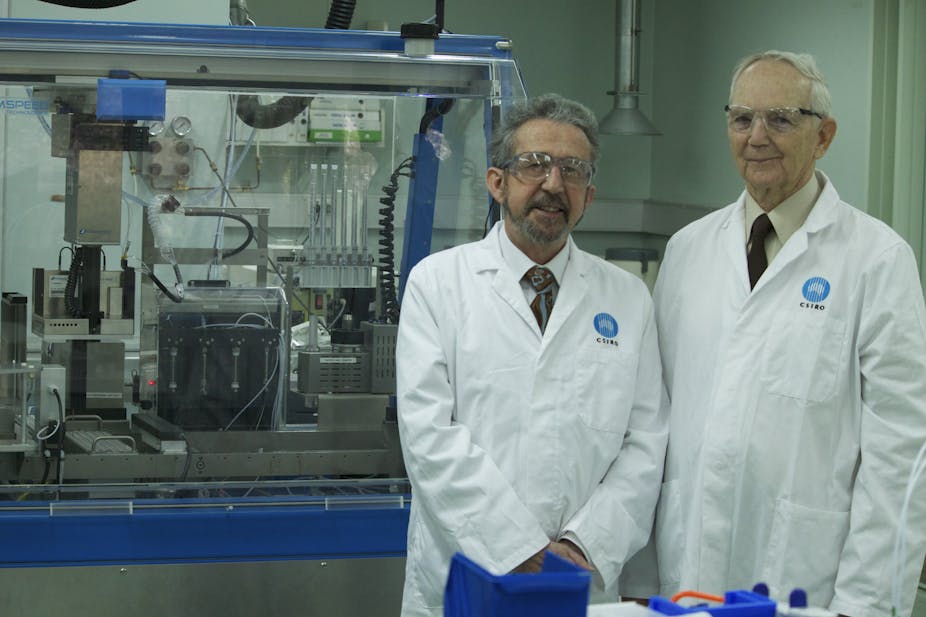Two Australian chemists have won the 2011 Prime Minister’s Prize for Science for the invention of “smart plastic” technology, a technique that revolutionised the way paints, contact lenses, solar cells and even drug delivery systems are made.
Professor David Solomon, Professorial Fellow at the University of Melbourne’s Department of Chemical & Biomolecular Engineering and Professor Ezio Rizzardo, CSIRO fellow at the Division of Materials Science and Engineering in Melbourne, were named the joint winners of the $300,000 prize in a ceremony in Canberra on Wednesday.
“It feels tremendous. It’s always very satisfying to be recognised by your peers and particularly in your own country,” said Professor Solomon, whose interest in chemistry began when he took a job in a paint factory in the 1940s at age 16.
“It’s really terrific,” said Professor Rizzardo, who emigrated to Australia as teenager without a word of English.
“We knew the work we were doing was pretty good but we didn’t think it would go this far. We are really over the moon.”
The pair led a research team that devised a way of creating polymers – long chains of molecules traditionally formed quickly and chaotically – in a much more controlled manner, such that one small molecule at a time could be added to the chain.
Controlling the way such polymers are made allows chemists to create new and versatile plastics that can be fine-tuned to suit a wide range of conditions.
Such “smart plastic” technology led to more than 500 patents for the CSIRO and will be used in future for everything from tyres, motor oil additives and scaffolding to printable plastic solar cells and more comfortable, long-lasting contact lenses.
“The possibilities are enormous. Some of the most exciting applications would be the drug delivery possibilities,” Dr Rizzardo said.
“The polymers are designed in a way so they can deliver the therapeutic agent or drug to the cancer site. This would make it more effective. It would also likely make the therapeutic agent less toxic and make it last longer in the body. There are many advantages.”
Professor Craig Hawker, director of the Materials Research Laboratory at the University of California said that the impact of Professor Solomon and Professor Rizzardo’s work cannot be overstated.
“It is rewriting the book on polymer synthesis, dramatically impacting many diverse and important areas of academic and industrial research. Their creativity reaches out far beyond the stellar science,” he said, in a statement released by the prize organisers.
“I see no limits to what can come from this work and am very proud to be able to say that it is home-grown Australian science through and through.”
Australian Academy of Science President, Professor Suzanne Cory, described the pair’s work as “truly transformative.”
“Their work is a marvellous example of how elegant fundamental science can also be of immense practical benefit,” she said.
“Each one of us feels the impact of their work, every day of our lives, in so many of the industrial products we use.”

